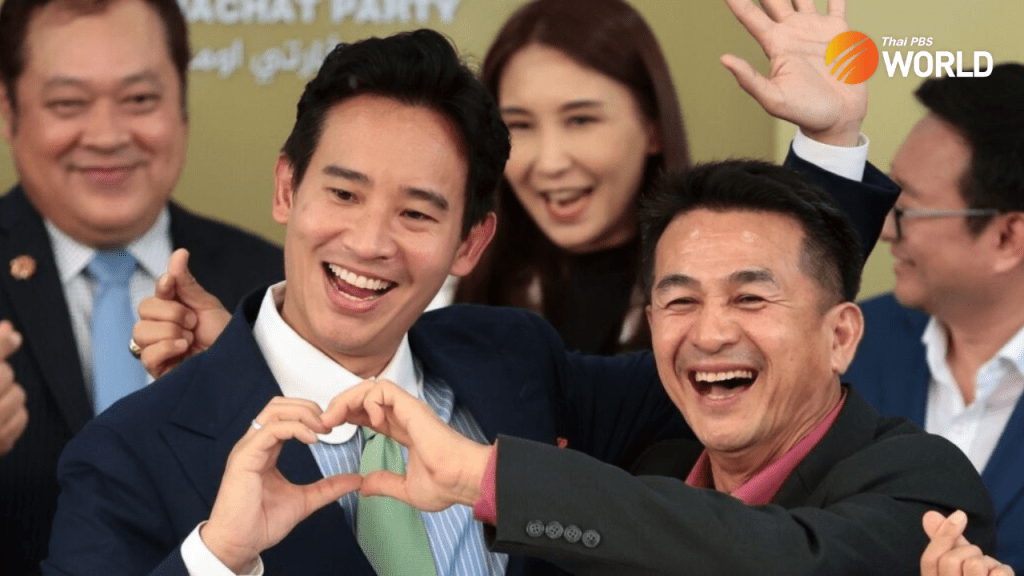If Thailand’s second part of the Romance of the Three Kingdoms ended with the Srettha government forming, the evolving part II is about how to maintain the shaky alliance and execute a significant plan to keep the isolated enemy scary but less threatening.
After the general election last May, Pheu Thai aimed to lead a coalition government while the conservatives aimed to sideline Move Forward. There was a mutual need to neutralize the election winner.
Now, a few things have changed, some visibly and others presumably. The conservatives are increasingly weighing their concern about Move Forward against Cambodia's support for the Shinawatras, Pheu Thai's control of national affairs, and advancing policies they once resisted.
As for Move Forward, the possibility of reuniting with Pheu Thai is becoming nearly impossible.
This practically means that the largest party will need to win the next general election by a significant margin to govern independently.
Pheu Thai is in the most complex situation, needing to balance carefully. It wants Move Forward to scare the conservatives but also realizes that a scarier Move Forward could shrink its electoral base.
Pheu Thai would prefer Move Forward to remain intimidating but not to the extent that it dissolves. It understands the impact of party dissolution and the importance of popular individuals in proxy politics.
Yingluck Shinawatra was relatively unknown when her brother was a political star. Thanathorn Juangroongruangkit was replaced by Pita Limjaroenrat just as easily.
Pheu Thai wants Move Forward to remain “scary”, but just enough to keep the conservatives worried and the fragile alliance stable.
Electoral danger is greater for Pheu Thai. Both the conservatives and Move Forward have loyal supporters, but the second largest party's support is exemplified by the reception Thaksin Shinawatra received in Chiang Mai.
Prime Minister Srettha Thavisin has struggled to make an impression in his initial months, making Pheu Thai's electoral task even more challenging.
So far, he has weakly defended the digital wallet, a flagship policy, and has not fared well on pressing police issues. His demeanor before Thaksin raises questions about his charisma and genuine influence.
Love it or hate it, the Prayut government seemed to have more unity than Srettha’s.
Once part of the love-hate triangle, the Democrats are hoping to regain ground and improve their status as a minor player. They may outshine Move Forward in certain situations regarding Thaksin's political and legal treatment.
Numerically, Pheu Thai and the conservatives still need each other in the next election, assuming Pheu Thai is not stunted too much. Their combined popular votes last year surpassed those of Move Forward by a few millions, but, without a major change, there is no way they can compete separately against the biggest party in the next election.
Is there any chance of a Pheu Thai-Move Forward reunion? While that was highly possible in traditional politics, Move Forward has thrived mainly on unconventional methods, so much so that changing political alliances could backfire uncontrollably.
That’s just one of the problems. Another significant issue is the one that caused Pheu Thai to reverse its position in the first place. Pheu Thai would never take a subordinate role in a government.
The only way to see a Pheu Thai-Move Forward coalition after the next election is for the former to oversee the likes of the Finance Ministry, an improbable scenario if the next election results in another victory for the latter.
The two parties will be competing to rule. The argument that the two biggest political parties should co-govern a country because that’s what the majority wants will no longer be valid.
Actually, though, Thailand’s Romance of the Three Kingdoms Part I was more chaotic.
At first, it was a triangle featuring the Democrats (who loathed Pheu Thai and were displeased with the military but who joined the Prayut government regardless), the military (who removed Pheu Thai from power and established constitutional rules that the former Democrat leaders didn’t approve of), and Pheu Thai (who was strengthened by the arrival of a new player in town, the Future Forward Party).
The unclear yet fierce conflict pushed the new player in town into the spotlight and placed the Democrats in obscurity. Shifting of alliances after last May was surprising and chaotic.
Dust is seeming to have settled more in Part II, with the three camps clearly outlined and seeking to outwit one another. Who will come out on top and who will become the biggest loser will remain to be seen, but the answers will certainly kick-start the Part III.
Tulsathit Taptim









